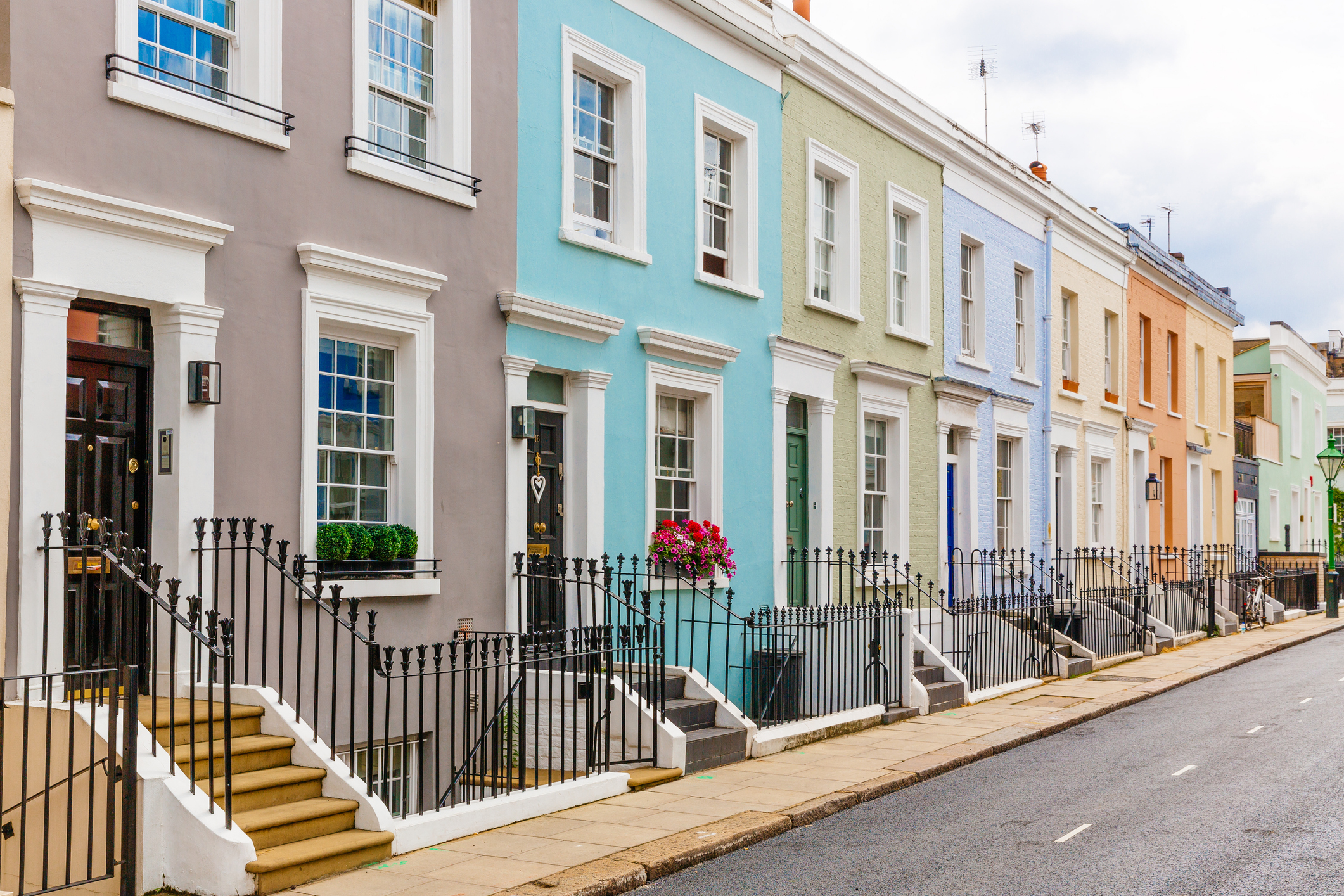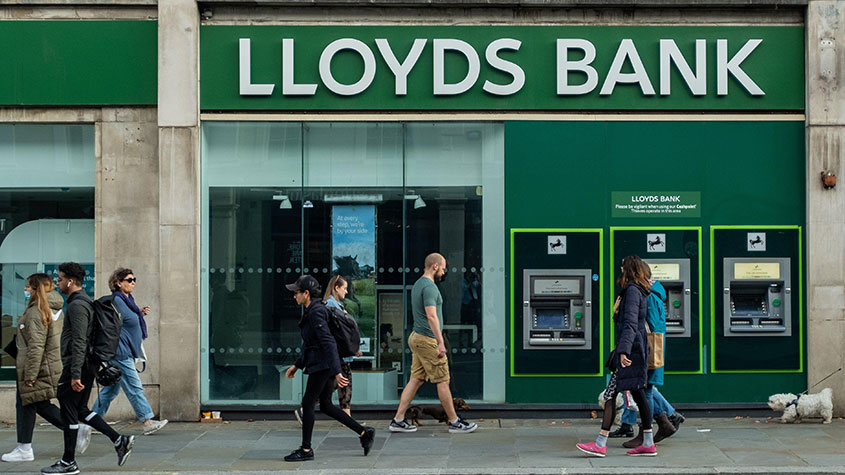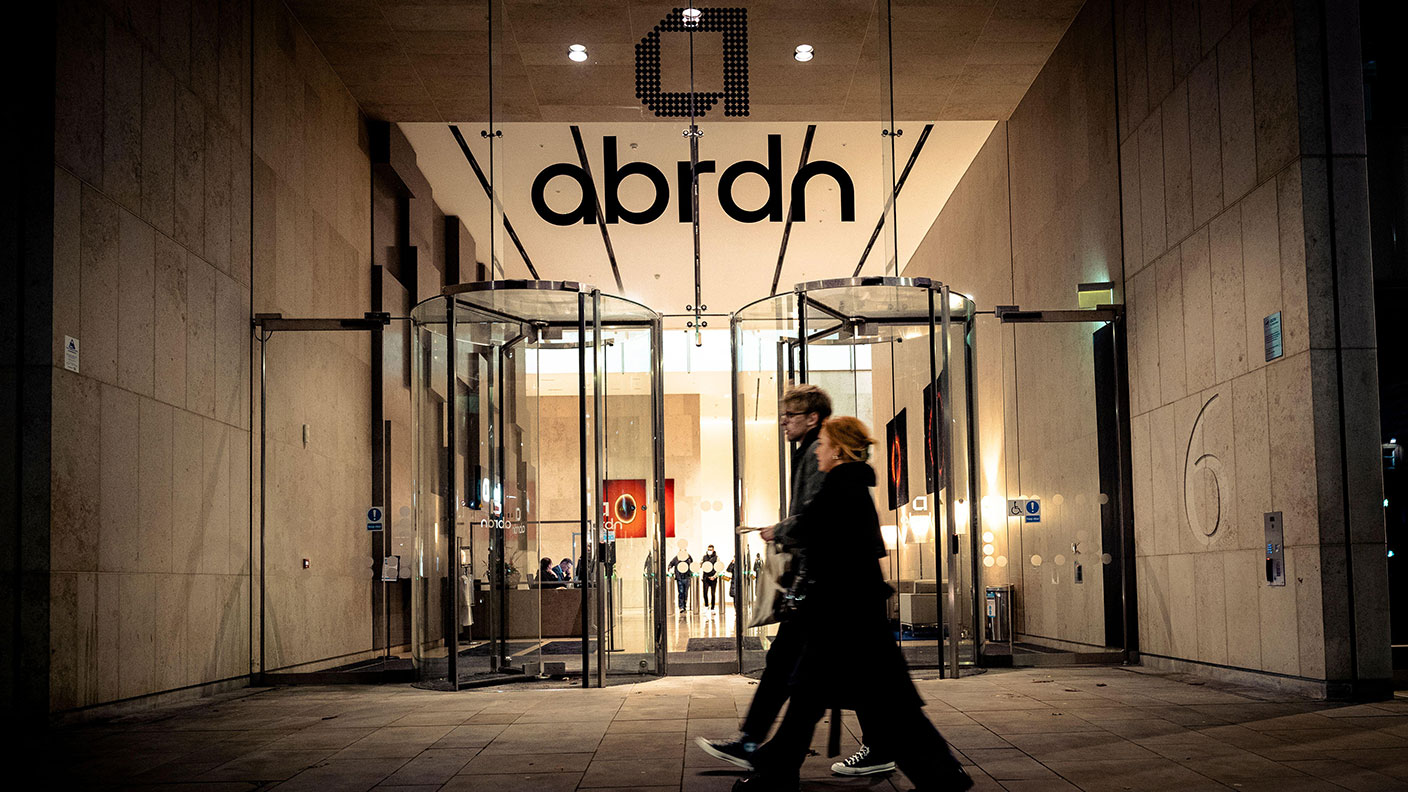The UK cities where it’s cheaper to buy a house than rent
For people in some areas of the country, home ownership is a distant dream. But for others it can be surprisingly affordable.


Get the latest financial news, insights and expert analysis from our award-winning MoneyWeek team, to help you understand what really matters when it comes to your finances.
You are now subscribed
Your newsletter sign-up was successful
Want to add more newsletters?

Twice daily
MoneyWeek
Get the latest financial news, insights and expert analysis from our award-winning MoneyWeek team, to help you understand what really matters when it comes to your finances.

Four times a week
Look After My Bills
Sign up to our free money-saving newsletter, filled with the latest news and expert advice to help you find the best tips and deals for managing your bills. Start saving today!
Buying a house is a major financial goal that many people spend much of their early working life trying to achieve.
With average house prices rising by 1.3% in the last year to £298,184, and houses in high-demand areas like London being worth an average £543,497, according to Halifax, being able to buy a home may seem nearly impossible.
But, if you can afford to do so, getting on the property ladder may be more worthwhile in some areas of the country than others.
MoneyWeek
Subscribe to MoneyWeek today and get your first six magazine issues absolutely FREE

Sign up to Money Morning
Don't miss the latest investment and personal finances news, market analysis, plus money-saving tips with our free twice-daily newsletter
Don't miss the latest investment and personal finances news, market analysis, plus money-saving tips with our free twice-daily newsletter
Buying a house in most major UK cities outside London with a low deposit is cheaper than renting, new research by Lloyds shows.
Looking at the average house price for a first-time buyer and calculating how much the average mortgage would cost with a 5% deposit, Lloyds found that some renters could save thousands of pounds a year by buying a house rather than renting.
The mortgage calculations are based on a 4.78% interest rate fixed for five years, with a 30-year repayment term.
The top five cities where you could save by buying
Glasgow
The British city where you will save the most money by buying a house rather than renting is Glasgow, the research found, where the average price a first-time buyer pays for their property is £172,000.
Assuming a 5% deposit of £8,800, a monthly mortgage payment would cost £855 on average. But renters would typically have to fork out £1,251 – nearly £400 more – every month just to rent a property in the city, Lloyds said.
Over the course of a year, renters in Glasgow could save £4,752 by moving into a property of their own once they save up £8,800.
Newcastle
Moving just south of the border, Newcastle is the city where renters could save the second-most by buying a property of their own.
The average first-time buyer property costs £180,000 in the city, with monthly mortgage payments being £895 assuming a 5% mortgage deposit of £9,000.
Meanwhile, renters are spending an average of £1,112 a month to live in the city, £217 more than the average first-time buyer mortgage. Over the course of a year, it’ll mean the homeowner will be £2,604 better off than the renter.
Edinburgh
Scotland’s capital city is the place where renters could save the third-most by buying a house.
The average first-time buyer house here costs £243,000 – a 5% deposit would be £12,150. Monthly rental payments in Edinburgh are an average of £1,392, but mortgage payments are just under £200 less at an average of £1,208.
Over the course of a year, the average renter will pay £2,208 more for their accommodation than if they had bought a house.
Bristol
The city where you could save the fourth-most by buying instead of renting, and the first in the south of England, is Bristol, where the average first-time buyer house costs £311,000.
The typical cost of a mortgage for a house this much is £1,547 a month, assuming a 5% deposit of £15,550.
On the other hand, a renter will pay £231 more to live in the city, paying an average of £1,778 a month. Over the course of 12 months, the renter will have paid an average of £2,772 more than the homeowner for their accommodation.
Manchester
Manchester finishes off the list of top five cities where it is cheaper to own a house than rent.
In the north-western city, a first-time buyer house costs an average of £234,000, with a monthly mortgage payment of £1,164, assuming a 5% deposit of £11,700.
Paying the mortgage is typically 11.6% cheaper than renting in the city. A renter pays an average of £1,317 for their accommodation, £153 more than the homeowner every month, climbing to £1,836 more over 12 months.
The cities where it’s cheaper to buy than rent: Full list
City | Average first-time buyer price | 5% deposit amount | Monthly mortgage cost | Monthly rent cost | Mortgage vs rent saving | Monthly saving | Annual saving |
|---|---|---|---|---|---|---|---|
Glasgow | £172,000 | £8,600 | £855 | £1,251 | 31.70% | £396 | £4,752 |
Newcastle | £180,000 | £9,000 | £895 | £1,112 | 19.50% | £217 | £2,604 |
Edinburgh | £243,000 | £12,150 | £1,208 | £1,392 | 13.20% | £184 | £2,208 |
Bristol | £311,000 | £15,550 | £1,547 | £1,778 | 13.00% | £231 | £2,772 |
Manchester | £234,000 | £11,700 | £1,164 | £1,317 | 11.60% | £153 | £1,836 |
Nottingham | £183,000 | £9,150 | £910 | £996 | 8.60% | £86 | £1,032 |
Leeds | £209,000 | £10,450 | £1,039 | £1,098 | 5.40% | £59 | £708 |
Liverpool | £167,000 | £8,350 | £830 | £864 | 3.90% | £34 | £408 |
Birmingham | £208,000 | £10,400 | £1,034 | £1,068 | 3.20% | £34 | £408 |
Cardiff | £231,000 | £11,550 | £1,149 | £1,138 | -1.00% | -£11 | -£132 |
Sheffield | £190,000 | £9,500 | £945 | £893 | -5.80% | -£52 | -£624 |
GB average | £228,233 | £11,412 | £1,135 | £1,360 | 16.50% | £225 | £2,700 |
Source: Lloyds, October 2025. Data does not include Northern Ireland, GB average excludes London.
What is stopping people from buying?
Seeing the raw figures, it may seem puzzling that so many people rent when they could actually save money (and build equity) by buying a house.
The biggest hurdle for many people who want to make the leap between renting and buying is saving up for a deposit.
When you are paying more than the cost of a mortgage to rent in a city, it can be difficult to find cash at the end of the month to put into a savings account for your house deposit.
Furthermore, average house prices have grown faster than average earnings in the past 25 years, making homes much more expensive in real terms.
In 2024, the average house in England cost 7.71 times more than the average annual salary. For comparison, this ratio was 6.85 in 2010 and 4.19 in 2000, according to data from the Office for National Statistics (ONS).
This means prospective buyers will need to save up even more money to afford a deposit.
Amanda Bryden, head of mortgages at Lloyds, said: “We know that saving for a deposit is one of the biggest hurdles for first-time buyers. With rents having risen sharply over the last two years, many are already managing monthly payments that are higher than a typical mortgage.
“That’s why low-deposit mortgages could be the right solution for many – helping people move from renting to owning sooner than they thought possible.
“It’s also important to consider other upfront costs like legal fees and moving expenses – but for most, the long-term savings will outweigh these.”
Can buying a house help build long-term financial security?
Buying a house can often be a good financial decision as it offers you more security and helps you build financial stability.
Even with a low deposit of 5%, a homebuyer could reduce their loan-to-value ratio from 95% to 87% over five years – even if their property does not increase in value by a single penny.
When combining the savings you get by buying instead of renting with the merits of paying off equity on your home, Lloyds worked out how much “better off” owners are than renters after five years.
Glasgow again tops the chart as owners are £28,978 better off than renting after five years. Owners in Bristol are £23,295 better off, those in Newcastle are £18,481 better off, those in Edinburgh are £18,412, and those in Manchester are £16,279 better off.
The table below shows how much better off owners are than renters could be after five years.
City | Average first-time buyer price | 5% deposit amount | Added equity after 5 years | 5-year savings (mortgage vs rent) | Added equity plus savings | Net ‘Better off’ (added equity plus savings, minus deposit) |
|---|---|---|---|---|---|---|
Glasgow | £172,000 | £8,600 | £13,818 | £23,760 | £37,578 | £28,978 |
Bristol | £311,000 | £15,550 | £24,985 | £13,860 | £38,845 | £23,295 |
Newcastle | £180,000 | £9,000 | £14,461 | £13,020 | £27,481 | £18,481 |
Edinburgh | £243,000 | £12,150 | £19,522 | £11,040 | £30,562 | £18,412 |
Manchester | £234,000 | £11,700 | £18,799 | £9,180 | £27,979 | £16,279 |
Nottingham | £183,000 | £9,150 | £14,702 | £5,160 | £19,862 | £10,712 |
Leeds | £209,000 | £10,450 | £16,791 | £3,540 | £20,331 | £9,881 |
Birmingham | £208,000 | £10,400 | £16,710 | £2,040 | £18,750 | £8,350 |
Liverpool | £167,000 | £8,350 | £13,416 | £2,040 | £15,456 | £7,106 |
Cardiff | £231,000 | £11,550 | £18,558 | -£660 | £17,898 | £6,348 |
Sheffield | £190,000 | £9,500 | £15,264 | -£3,120 | £12,144 | £2,644 |
Source: Lloyds, October 2025
Get the latest financial news, insights and expert analysis from our award-winning MoneyWeek team, to help you understand what really matters when it comes to your finances.

Daniel is a financial journalist at MoneyWeek, writing about personal finance, economics, property, politics, and investing.
He covers savings, political news and enjoys translating economic data into simple English, and explaining what it means for your wallet.
Daniel joined MoneyWeek in January 2025. He previously worked at The Economist in their Audience team and read history at Emmanuel College, Cambridge, specialising in the history of political thought.
In his free time, he likes reading, walking around Hampstead Heath, and cooking overambitious meals.
-
 Should you buy an active ETF?
Should you buy an active ETF?ETFs are often mischaracterised as passive products, but they can be a convenient way to add active management to your portfolio
-
 Power up your pension before 5 April – easy ways to save before the tax year end
Power up your pension before 5 April – easy ways to save before the tax year endWith the end of the tax year looming, pension savers currently have a window to review and maximise what’s going into their retirement funds – we look at how
-
 Why investors can no longer trust traditional statistical indicators
Why investors can no longer trust traditional statistical indicatorsOpinion The statistical indicators and data investors have relied on for decades are no longer fit for purpose. It's time to move on, says Helen Thomas
-
 Uncertainty ahead of the Budget causes house price growth to stall, says Rightmove
Uncertainty ahead of the Budget causes house price growth to stall, says RightmoveProperty website Rightmove says asking prices increased by just 0.3% in October, well below the 1.3% average for the month
-
 Homeowners sitting on gains of £80,000 over the last 20 years
Homeowners sitting on gains of £80,000 over the last 20 yearsData from Zoopla shows significant increases in UK property prices over the last two decades
-
 ONS: UK house prices fell 1.4% in 2023 – is now a good time to buy?
ONS: UK house prices fell 1.4% in 2023 – is now a good time to buy?News The latest Office for National Statistics data shows the housing market dropped in 2023 but there are signs of a recovery – how long will it last?
-
 Crypto scams – what to look out for
Crypto scams – what to look out forFraudsters are using cryptocurrency scams to lure investors desperate for high returns - here is how to spot and avoid them
-
 UK banking stocks: what’s the latest this results season, and are they worth a look?
UK banking stocks: what’s the latest this results season, and are they worth a look?All five major UK banks released their annual results in February, reporting profit increases. But the sector has long been unloved by investors. Are UK banking stocks hidden gems, or better avoided?
-
 Lloyds Bank shares could see an interest-rate windfall
Lloyds Bank shares could see an interest-rate windfallAnalysis Interest rates are heading higher, which could be good news for Lloyds Bank shares as profits are set to grow.
-
 Is abrdn’s eye-catching 9.2% dividend yield sustainable?
Is abrdn’s eye-catching 9.2% dividend yield sustainable?Tips Shares in investment manager abrdn currently yield 9.2%. Generally speaking, says Rupert Hargreaves, it pays to be sceptical of very high dividend yields. So is that the case here, or is abrdn one for income investors to tuck away?